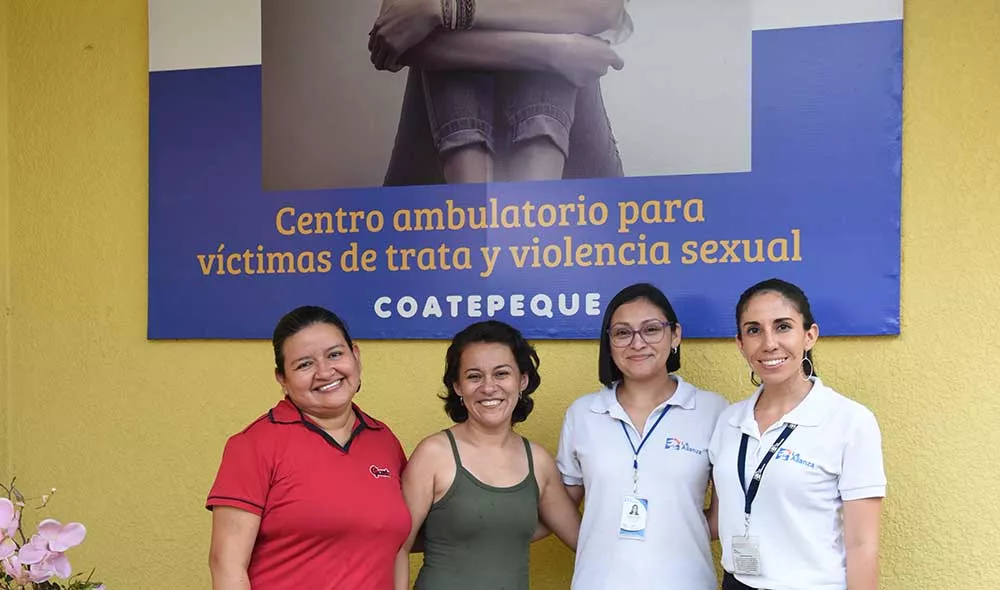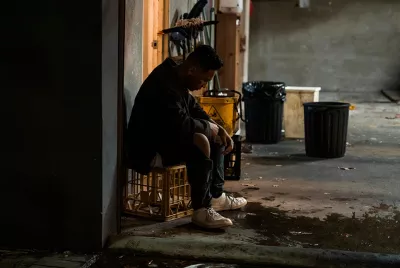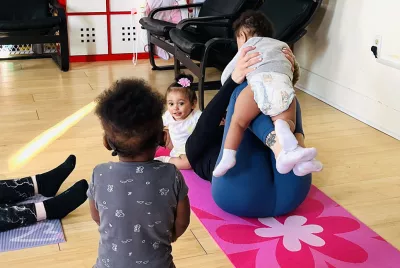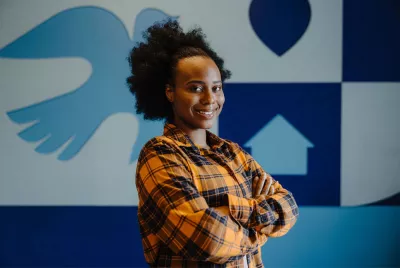Up For the Challenge

Unconditional love and absolute respect. These are words heard often in the Covenant House community; they express what our dedicated staff are committed to providing to the young people who come to our doors across the 34 cities in the six countries where we work. In Coatepeque, Guatemala, where our small and courageous staff regularly disrupt the business and profits of human traffickers, unconditional love and absolute respect are fuel for a risky mission.
Our Coatepeque office is an outpost of Covenant House Guatemala, our residential programs in Guatemala City and San Juan del Obispo. It is located near the Suchiate River, which flows between Mexico and Guatemala across the migrant trail. By day, the river is used for both commerce and contraband. But by night it is used for migration. It is a place where deportees are formally returned from Mexico and the United States. The vulnerability of the area and those seeking to migrate makes it a hotbed for human traffickers.
Back in May, the four women who staff our Coatepeque site gathered around 16-year-old Carmen (whose name has been changed to protect her identity). The five of them stood atop a dirt floor, shielded from the elements, and from the threat of violence in the community, by only tin sheets that serve as walls and a roof.
The women stood in a circle, as Carmen told her story, her raw emotions evident by the tears streaming down her face. Carmen had been raped by a family member of her neighbor, a neighbor who lives just on the other side of those tin walls. There was no discretion or protection on the route to this home — Carmen's family home. So easily exposed during their walk, just getting here was a risk.
As Isabel, Keily, Evelyn, and Elida encircled Carmen, they each listened to her from different perspectives. Isabel, a psychologist, is focused on helping Carmen to eventually heal from her trauma, while Keily, a lawyer, is pursuing legal action against the perpetrator. Evelyn is a social worker, who connects local families with area service providers, and Elida, a community organizer and educator, helps community members to know and understand their rights, and encourages and empowers them to call out perpetrators and get help when needed.
Together, they are an embodiment of the “unconditional love and absolute respect” that ground Covenant House’s mission.
This courageous team of women is connected to a network of providers in their region to address issues of human trafficking and sexual violence in supporting survivors. Just the day before the meeting with Carmen, they received a text from the fire department about a disoriented woman walking the village with a 6-year-old girl. In this village, in this network of providers, a call to Covenant House Guatemala is a natural first step.
The team leapt into action and headed to the hospital to meet the woman and her child to complete an assessment to understand how best to help. The hospital “waiting room” consisted simply of a hallway and, outside, the sidewalk and space under nearby trees. Isabel sat at the bedside of the woman to learn more.
Having multilingual staff who can be supportive is necessary for us to be effective in the country, and at Covenant House Guatemala, staff speak five different Mayan languages in addition to Spanish. That’s because in Guatemala, 25 different languages are spoken — 22 Mayan languages, two other Indigenous languages, and Spanish.
In this case, Isabel wasn’t able to discern the woman’s language, and the child was unresponsive, so the team made arrangements to connect with a government agency that helps with interpretation.
Besides providing direct services like these, our Coatepeque staff also supports groups of local women who meet monthly to learn about trafficking, how to identify it, and how to report it. The women in these groups become the eyes and ears in their communities, looking out for others in danger of trafficking, exploitation, or sexual violence.
The walls of our Coatepeque office are lined with shelves filled with binders, each representing a young person the team has helped in the three years since the site’s opening — 165 girls, and five boys.
In Coatepeque, there’s no shortage of work for the staff. We are thankful to Isabel, Keily, Evelyn, and Elida, and we applaud their bravery as they continue to summon the courage to keep going every day.
Shelter Is Only the Beginning
From crisis to care: Find out what it's like when a young person enters our doors.


